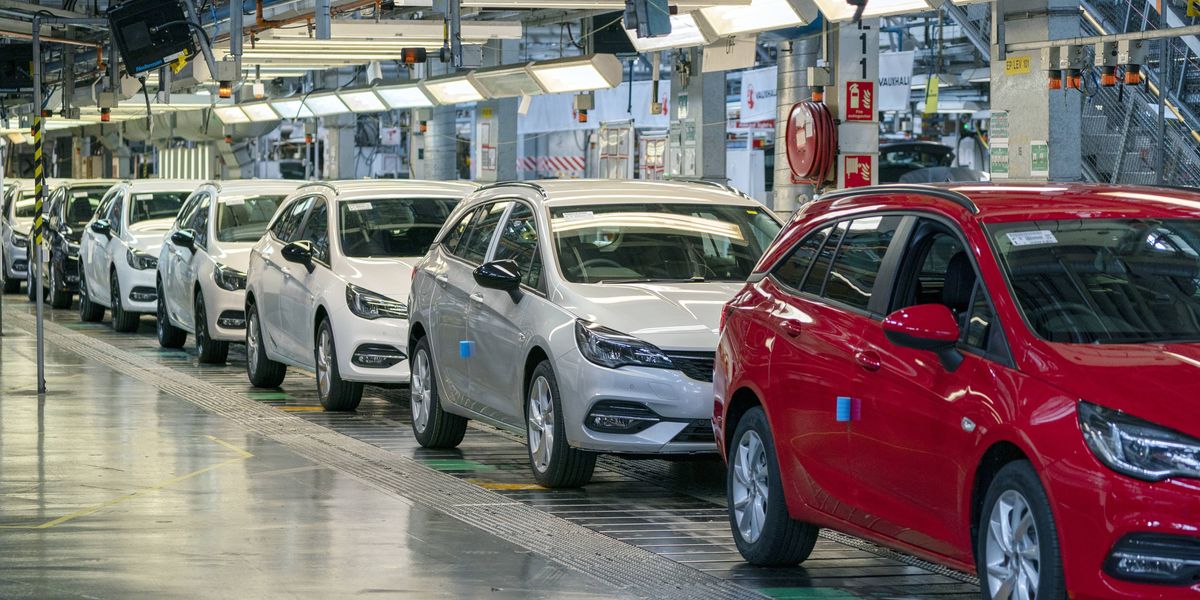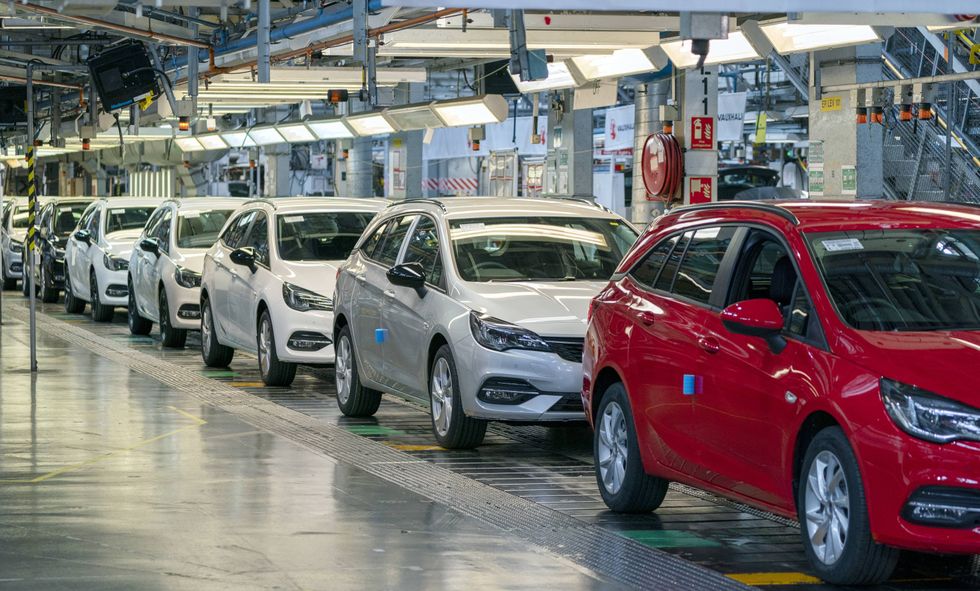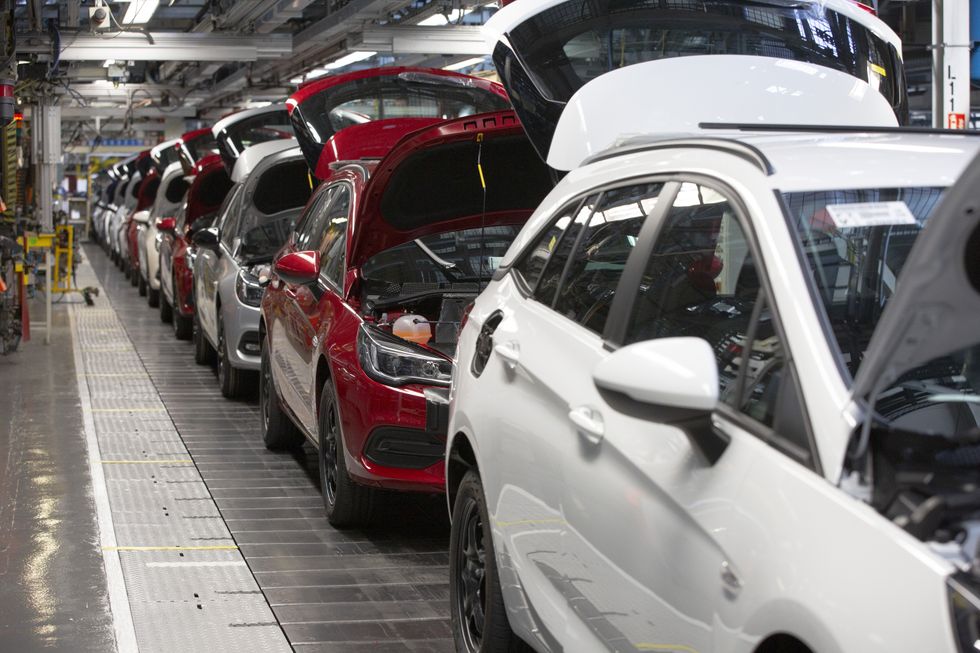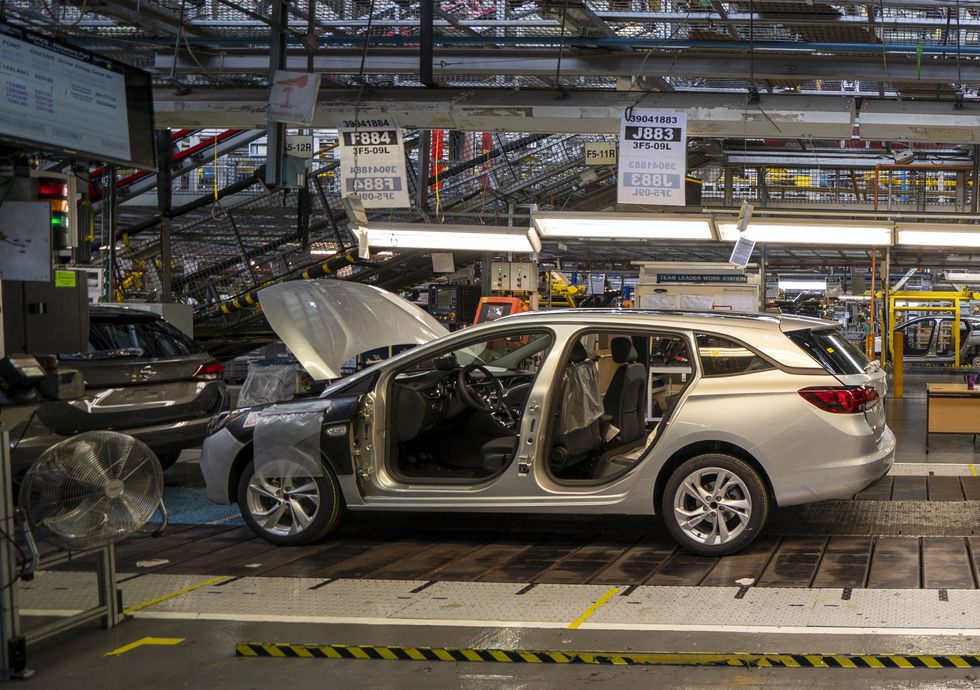



UK car manufacturing has plummeted to its lowest point in over seven decades, with production dropping 11.9 per cent during the initial six months of the year, reaching just over 417,000 units.
This marks the weakest performance since 1953, excluding the pandemic-induced shutdowns, with experts calling for urgent support to help keep the vital industry going.
The decline impacted both passenger cars and commercial vehicles, with 385,810 cars and 31,422 vans rolling off production lines between January and June.
Industry experts have described these figures as "depressing", with chief executive Mike Hawes of the Society of Motor Manufacturers and Traders (SMMT) expressing hope that this period represents "the nadir" for British automotive manufacturing.
 PA |
PA |
UK car production was impacted by tariffs and Vauxhall closing its Luton van plant
The dramatic fall reflected mounting pressures from global economic instability alongside trade wars, which have severely impacted car production worldwide.
Passenger car manufacturing decreased by 7.3 per cent compared to the previous year, while commercial vehicle production experienced a catastrophic 45.4 per cent collapse.
The van manufacturing sector bore the brunt of this downturn, with Stellantis closing its Vauxhall facility in Luton in April, impacting more than 1,100 jobs. The closure eliminated a significant portion of the UK’s commercial vehicle capacity, contributing substantially to the overall production decline.
Despite these setbacks, June brought a modest comeback with car manufacturing rising 6.6 per cent, though this improvement came against weak comparatives from 2024 when model transitions and supply chain disruptions hampered output.
 GETTY |
GETTY |
The decline impacted both passenger cars and commercial vehicles
Electric vehicle production bucked the downward trend, increasing 1.8 per cent to 160,107 units, with battery electric, hybrid and plug-in hybrid models now representing 41.5 per cent of UK carmakers' output during the first half of 2025.
Uncertainty surrounding US tariffs announced by President Donald Trump significantly contributed to the production slowdown, with several manufacturers reducing or halting operations this year.
The United States represents the UK’s second-largest car export market, accounting for 15.9 per cent of overseas sales.
A bilateral agreement reducing US tariffs from 27.5 per cent to 10 per cent took effect on June 30, potentially restoring confidence amongst manufacturers.
Stellantis recently disclosed that US tariffs had cost the company £300million, underscoring the financial impact of trade barriers.
The European Union remains the UK’s primary export destination, receiving 54.4 per cent of UK-manufactured vehicles. China, Turkey and Japan complete the top five markets, collectively accounting for over 80 per cent of British automotive exports.
Earlier this month, the Government's reintroduction of electric vehicle grants sparked widespread confusion within the automotive sector.
The £650million scheme offers discounts of up to £3,750 on EVs priced below £37,000, yet manufacturers remain uncertain about eligibility requirements. But, Hawes noted that "nobody, not even Government, really knows yet which models and which brands will qualify".
 PA |
PA |
UK car production has dropped to the lowest level since 1953
The grants depend on carbon emissions during vehicle and battery production, with manufacturers required to demonstrate verified science-based targets meeting undefined government thresholds. Industry representatives criticised the lack of consultation before the scheme's announcement.
The Department for Transport stated it expects "dozens of models to be eligible" and is "engaging extensively with vehicle manufacturers", though specific criteria remain unpublished. Independent forecasts project total vehicle production will decrease by 15 per cent to 755,000 units for the full year, before rebounding with 6.4 per cent growth in 2026 to reach 803,000 units.
The SMMT emphasised that achieving the Government's ambitious target of 1.3 million vehicles annually by 2035 would require "at least one, if not two, new entrants" to establish UK production facilities.
Industry leaders have now called for the swift implementation of the Government's Industrial Strategy, which positions automotive manufacturing as central to economic growth. The sector also seeks broader measures, including reduced energy costs, accelerated infrastructure development and solutions to skills shortages.
